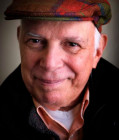Connect with the author
The United States today faces daunting challenges – reforming education, creating 21st-century jobs, addressing the threat of global warming, and revitalizing our infrastructure. Such complex problems are unlikely to be successfully tackled without all hands on deck. We must tap the interests and capabilities of citizens, public officials, professionals, and private-sector leaders. Broad coalitions must collaborate across institutional boundaries and partisan divisions. Problem-solving can no longer be left to government understood as a service provider, with everyone else standing passively to the side as “clients” or “customers.”
“Governance” as I use the term means tackling public challenges through active citizen involvement in broad partnerships with professionals and officials. Citizenship takes on a productive and participatory cast – involving more than just voting, consuming public services, and occasionally volunteering. Public professionals – such as office-holders, civil servants, and nonprofit managers – become more than providers of services and experts who design and impose solutions from above. They instead become partners, educators, and organizers of fellow citizens. Governance shifts the meaning of democracy from occasional elections to more sustained partnerships of public officials, civic leaders, and engaged citizens. Progress in areas ranging from education and health care to creating a more energy-efficient way of life requires that private-sector actors and organized citizens become more continuously involved. Government officials cannot be the sole problem-solvers; nor can legislatures and bureaucracies be the only sites where democracy’s work is done.
The American Tradition of Citizen Democracy
As Abraham Lincoln said at Gettysburg, American government is “of the people, by the people, for the people.” Not simply “for” the people, democratic government in America is embedded in the life of communities, hence “of” the people. It is also “by” the people, a meeting ground and instrument of citizens working together. Lincoln was invoking an understanding of American democracy as a way of life, a tradition embodied in many institutions, professions, and public practices.
Standing proudly in this tradition, Vice President Hubert Humphrey drew his understanding of politics from his father’s drug store in Doland, South Dakota. The store functioned as a civic meeting ground for the community, sustained by his father’s strong sense of himself as a “citizen businessman.” Throughout his career Humphrey understood that citizenship is expressed through daily work. In 1952, he argued that small businesses are important because they “produced good citizens, and good citizens are the only hope of freedom and democracy.” He called for democracy based on “thousands of small entrepreneurs, independent businessmen, and landholders who can stand on their own feet and talk back to their government or to anyone else.” Humphrey regularly encouraged action by voters. “Government isn't supposed to do all of this,” he said in 1967 to a voter in Phoenix who urged him to fix politics. “If you think politics is corrupt, get your bar of political Ivory soap and clean it up.”
The Erosion of Civic Engagement
American civic democracy has been undermined, in part, by antiseptic notions of detached expertise taught in colleges and universities that have taken on an “ivory tower” quality. As experts proliferate, talking to one another and operating apart from other citizens, “civic professionalism” – in which educated people cooperate with fellow citizens – narrows to become “disciplinary professionalism,” in the phrases of historian Thomas Bender. Disciplinary professionals push narrow kinds of expertise and claim that experts know best.
The divorce of experts from fellow citizens deepened as democratic engagement declined in other ways. Local businesses have been replaced with giant box stores. Schools see students as consumers. The local YMCA traded community problem-solving for racquetball courts. Reinforcing these changes, academics view democracy as confined to occasional elections and reconceptualize citizens as consumers concerned with “who gets what” and “who pays.”
Signs of Renewal
Discontent with this state of affairs is growing and community-building efforts have begun to revitalize America’s civic culture and politics. Several examples illustrate the possibilities:
- Citizen-centered politics has spread. For instance, Public Achievement, the youth education initiative developed by the Center for Democracy and Citizenship, teaches young people to work in teams on public issues, coached by older adults. Young people learn how to bridge differences, map the everyday politics of their schools or communities, and develop a sense of themselves as agents of change. They can be “citizens today,” not just future voters.
- In the Humphrey tradition, the Citizen Professional Center at the University of Minnesota begins with the premise that “the greatest untapped resource for improving health and social well-being is the knowledge, wisdom, and energy of individuals, families, and communities who face challenging issues in their everyday lives.” The center has fostered an African American Citizen Fathers Project; a project with Hennepin County to redefine civil servants’ work as collaboration with citizens; and an effort called the Citizen Health Care Home, which stresses personal, family, and community responsibility for health.
- A theory developed by Nobel prize-winning economist Elinor Ostrom and her colleagues shows that public goods – benefits that people can enjoy together if everyone pitches in – are often most effectively sustained not by government alone or private economic actors alone, but by citizens who cooperate to devise and enforce rules to sustain the shared endeavor. When people create the shared resource, they will work to protect it.
Both good theory and community efforts show that it is possible to reinvent active citizenship. Traditional ideals can inspire us, and innovative experiments can refresh our democratic energy, as we reform American government to tackle the challenges of the new century.
Read more in Harry C. Boyte, “Reframing Democracy: Governance, Civic Agency, and Politics.” Public Administration Review 65, no. 5 (2005): 536-546.
